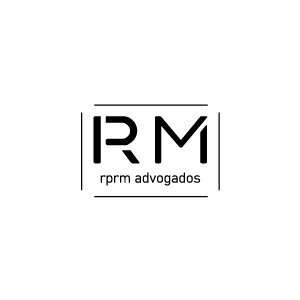Best Bankruptcy & Debt Lawyers in Porto
Share your needs with us, get contacted by law firms.
Free. Takes 2 min.
List of the best lawyers in Porto, Portugal
About Bankruptcy & Debt Law in Porto, Portugal
Bankruptcy & Debt law in Porto, Portugal governs the legal processes and procedures related to individuals or businesses that are unable to pay their debts. It provides mechanisms for debtors to seek relief from their creditors and establish a plan to repay or discharge their debts.
Why You May Need a Lawyer
There are several situations where you may require a lawyer's assistance in Bankruptcy & Debt cases:
- If you are considering filing for bankruptcy and need guidance on which type of bankruptcy suits your situation
- If you need help navigating the legal process and completing the required paperwork
- If your creditors are harassing you or engaging in illegal collection practices
- If you are facing foreclosure or repossession of assets
- If you need assistance negotiating with creditors for debt settlement or restructuring
Local Laws Overview
The key aspects of local laws regarding Bankruptcy & Debt in Porto, Portugal include:
- There are three main types of bankruptcy available for individuals: insolvência pessoal (personal insolvency), plano de pagamentos (payment plan), and exoneração do passivo restante (discharge of remaining liabilities)
- Portugal follows a civil law legal system, which means that bankruptcy proceedings are handled by the courts
- Certain types of debt may be exempt from bankruptcy discharge, such as student loans or taxes
- There are specific income and debt thresholds to qualify for different types of bankruptcy
- Debtors may be required to undergo credit counseling or financial education as part of the bankruptcy process
Frequently Asked Questions
1. What are the different types of bankruptcy available in Porto, Portugal?
In Porto, Portugal, individuals have three main types of bankruptcy available: insolvência pessoal (personal insolvency), plano de pagamentos (payment plan), and exoneração do passivo restante (discharge of remaining liabilities).
2. Can I keep any of my assets if I file for bankruptcy?
Yes, it is possible to keep some of your assets depending on the type of bankruptcy you file for and their value. Consult with a lawyer to understand the specific rules and exemptions applicable to your situation.
3. How long does the bankruptcy process typically take in Porto, Portugal?
The duration of the bankruptcy process can vary depending on various factors such as the complexity of the case and the type of bankruptcy filed. It can range from a few months to several years.
4. Will filing for bankruptcy stop creditor harassment?
Yes, filing for bankruptcy triggers an automatic stay, which prohibits creditors from contacting you or engaging in collection activities while the bankruptcy process is ongoing.
5. Will bankruptcy completely eliminate all my debts?
Bankruptcy may discharge certain types of debts, but not all. Some debts, such as student loans or taxes, may not be eligible for discharge. Consult with a lawyer to understand which debts can be discharged in your specific case.
Additional Resources
- Portuguese Association of Insolvency Practitioners - Provides information and resources on bankruptcy and debt-related matters. Website: www.apcis.pt
- Bank of Portugal - The central bank of Portugal offers information and guidance on financial matters. Website: www.bportugal.pt
- Legal Aid Commission - Offers legal assistance and support for individuals who cannot afford a lawyer. Website: www.cgaj.mj.pt
Next Steps
If you require legal assistance with Bankruptcy & Debt matters in Porto, Portugal, it is advisable to consult with an experienced bankruptcy lawyer. They will guide you through the process, help protect your rights, and ensure you make informed decisions based on your specific circumstances.
Lawzana helps you find the best lawyers and law firms in Porto through a curated and pre-screened list of qualified legal professionals. Our platform offers rankings and detailed profiles of attorneys and law firms, allowing you to compare based on practice areas, including Bankruptcy & Debt, experience, and client feedback.
Each profile includes a description of the firm's areas of practice, client reviews, team members and partners, year of establishment, spoken languages, office locations, contact information, social media presence, and any published articles or resources. Most firms on our platform speak English and are experienced in both local and international legal matters.
Get a quote from top-rated law firms in Porto, Portugal — quickly, securely, and without unnecessary hassle.
Disclaimer:
The information provided on this page is for general informational purposes only and does not constitute legal advice. While we strive to ensure the accuracy and relevance of the content, legal information may change over time, and interpretations of the law can vary. You should always consult with a qualified legal professional for advice specific to your situation.
We disclaim all liability for actions taken or not taken based on the content of this page. If you believe any information is incorrect or outdated, please contact us, and we will review and update it where appropriate.
Browse bankruptcy & debt law firms by service in Porto, Portugal
Porto, Portugal Attorneys in related practice areas.










